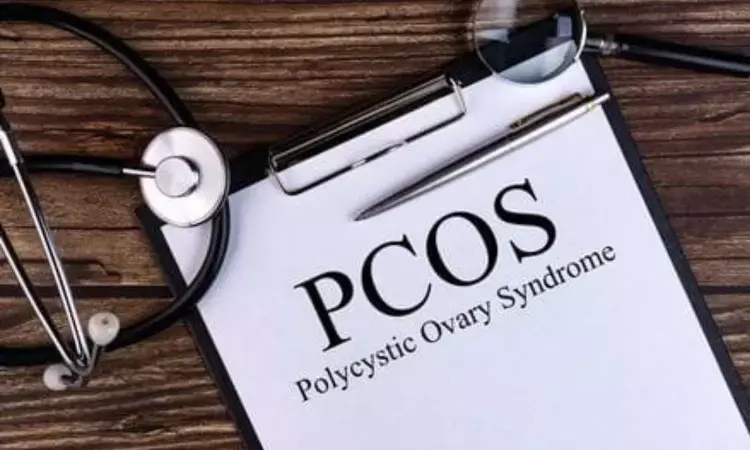- Home
- Medical news & Guidelines
- Anesthesiology
- Cardiology and CTVS
- Critical Care
- Dentistry
- Dermatology
- Diabetes and Endocrinology
- ENT
- Gastroenterology
- Medicine
- Nephrology
- Neurology
- Obstretics-Gynaecology
- Oncology
- Ophthalmology
- Orthopaedics
- Pediatrics-Neonatology
- Psychiatry
- Pulmonology
- Radiology
- Surgery
- Urology
- Laboratory Medicine
- Diet
- Nursing
- Paramedical
- Physiotherapy
- Health news
- Fact Check
- Bone Health Fact Check
- Brain Health Fact Check
- Cancer Related Fact Check
- Child Care Fact Check
- Dental and oral health fact check
- Diabetes and metabolic health fact check
- Diet and Nutrition Fact Check
- Eye and ENT Care Fact Check
- Fitness fact check
- Gut health fact check
- Heart health fact check
- Kidney health fact check
- Medical education fact check
- Men's health fact check
- Respiratory fact check
- Skin and hair care fact check
- Vaccine and Immunization fact check
- Women's health fact check
- AYUSH
- State News
- Andaman and Nicobar Islands
- Andhra Pradesh
- Arunachal Pradesh
- Assam
- Bihar
- Chandigarh
- Chattisgarh
- Dadra and Nagar Haveli
- Daman and Diu
- Delhi
- Goa
- Gujarat
- Haryana
- Himachal Pradesh
- Jammu & Kashmir
- Jharkhand
- Karnataka
- Kerala
- Ladakh
- Lakshadweep
- Madhya Pradesh
- Maharashtra
- Manipur
- Meghalaya
- Mizoram
- Nagaland
- Odisha
- Puducherry
- Punjab
- Rajasthan
- Sikkim
- Tamil Nadu
- Telangana
- Tripura
- Uttar Pradesh
- Uttrakhand
- West Bengal
- Medical Education
- Industry
Sons of women with PCOS more likely to develop obesity, dyslipidemia

Sweden: Children (male) born to women with PCOS (polycystic ovary syndrome) are at thrice the risk of developing obesity, a study published in Cell Reports Medicine has revealed. PCOS-sons are also more likely to have dyslipidemia.
Daughters of women with PCOS have a fivefold risk of developing the same disease. Although it is unclear how sons of women with PCOS are affected, research suggests that they are more likely to have weight and hormone problems.
According to the researchers from Karolinska Institutet, the findings highlight a previously unknown risk of passing PCOS-related health problems across generations through the male side of a family. They suggest that miRNAs altered in the serum of PCOS-sons and women with PCOS targets PCOS-risk genes.
PCOS is caused by the ovaries producing too much of the sex hormone testosterone. The disease affects around 15 per cent of women of childbearing age worldwide and is a condition that can make it difficult to get pregnant. In addition, the disease is associated with various health problems such as diabetes, obesity, and mental illness.
The researchers used both registry data and mouse models in the newly published study to determine if and how PCOS-like traits are passed from mothers to their sons. Just over 460,000 sons born in Sweden between July 2006 and December 2015 were included in the registry study. Of these, roughly 9,000 were sons of women with PCOS. The researchers then identified which of the children were obese.
“We discovered that sons of women with PCOS have a threefold risk of obesity and of having high levels of "bad" cholesterol, which increases the risk of developing insulin resistance and type 2 diabetes later in life”, says Elisabet Stener-Victorin, professor at the Department of Physiology and Pharmacology, Karolinska Institutet who led the study.
These findings were confirmed in the mouse study, where the researchers examined male offspring of female mice that before and during pregnancy were fed either a standard diet or a diet rich in fat and sugar, and were exposed to high levels of the male sex hormone dihydrotestosterone during pregnancy to mimic the pregnancy of normal weight individuals and obese women with PCOS.
The male mice were then fed a standard diet until adulthood when their fat distribution and metabolism were examined.
“We could see that these male mice had more fat tissue, larger fat cells, and a disordered basal metabolism, despite eating a healthy diet”, says Elisabet Stener-Victorin.
To investigate the reproductive function of the offspring and whether physiological characteristics can be passed on from generation to generation, the first-generation male mice were mated with healthy female mice that were not exposed to male sex hormones or a diet rich in fat and sugar. The whole process was repeated in the second generation to reach the third generation, the first generation unaffected by the mother condition.
“Through these experiments, we can show that obesity and high levels of male hormones in the woman during pregnancy can cause long-term health problems in the male offspring. Their fat tissue function, metabolism, and reproductive function deteriorate, which in turn affects future generations”, says Qiaolin Deng, associate professor at the same department and one of the researchers behind the study.
“These findings are important because they highlight the risk of passing health problems down through the male side of a family, highlight the risk of passing this kind of health problem, and they may help us in the future to find ways to identify, treat and prevent reproductive and metabolic diseases at an early stage”, says Elisabet Stener-Victorin.
Reference:
Sanjiv Risal, Congru Li, Qing Luo, Romina Fornes, Haojiang Lu, Gustaw Eriksson, Maria Manti, Claes Ohlsson, Eva Lindgren, Nicolas Crisosto, Manuel Maliqueo, Barbara Echiburú, Sergio Recabarren, Teresa Sir Petermann, Anna Benrick, Nele Brusselaers, Jie Qiao, Qiaolin Deng, Published:May 05, 2023DOI:https://doi.org/10.1016/j.xcrm.2023.101035.
Dr Kamal Kant Kohli-MBBS, DTCD- a chest specialist with more than 30 years of practice and a flair for writing clinical articles, Dr Kamal Kant Kohli joined Medical Dialogues as a Chief Editor of Medical News. Besides writing articles, as an editor, he proofreads and verifies all the medical content published on Medical Dialogues including those coming from journals, studies,medical conferences,guidelines etc. Email: drkohli@medicaldialogues.in. Contact no. 011-43720751


